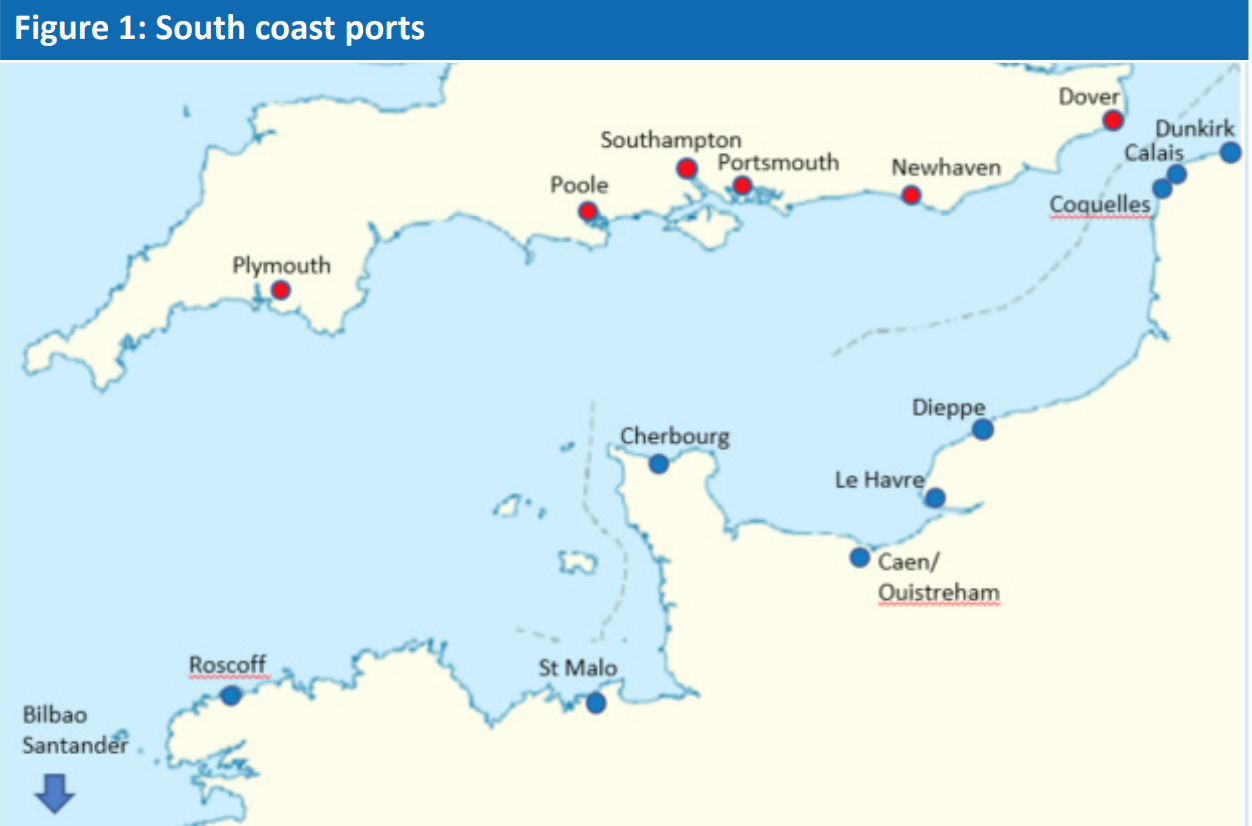- BY CJ McKinney

No Channel ports have enough immigration and customs officers, inspector finds
THANKS FOR READING
Older content is locked

A great deal of time and effort goes into producing the information on Free Movement, become a member of Free Movement to get unlimited access to all articles, and much, much more
TAKE FREE MOVEMENT FURTHER
By becoming a member of Free Movement, you not only support the hard-work that goes into maintaining the website, but get access to premium features;
- Single login for personal use
- FREE downloads of Free Movement ebooks
- Access to all Free Movement blog content
- Access to all our online training materials
- Access to our busy forums
- Downloadable CPD certificates

The Independent Chief Inspector of Borders and Immigration, David Bolt has published a new report focusing on border controls at south coast seaports. Parts of the report make worrying reading in light of the increased demands on those ports after Brexit. For one thing, the Border Force reports being understaffed at all the ports visited, including Dover:
Staff numbers was raised as an issue at each of the seaports visited by inspectors (Dover, Portsmouth, Southampton and Poole). Managers reported that they had been “understaffed” throughout 2017-18. Regional senior managers confirmed that ports had been operating below their budgeted headcounts, but pointed to ongoing recruitment exercises aimed at rectifying this…
At the ports, there was some cynicism about whether these new officers would materialise, and some managers argued that ‘batch’ recruitment would not provide a quick fix, and would create additional strains in the short term, as it took around 18 months for new recruits to become fully effective in their roles and during that period it was necessary to devote experienced officers to mentoring them.
Similarly, when it comes to customs controls, the report suggests that the system for selecting targets for inspection is less than gold standard:
At all the ports visited, [staff] told inspectors that they were sceptical about the quality and said that, despite Border Force’s ambition, “we are not intelligence-led”… One gave the example of a category C target that was selected on the basis that the company “usually carries broccoli but [is] now carrying cauliflower”.
The system of fines for transport companies found to have carried migrants into the UK illegally is reported as “broken”, with no fines actually levied since July 2016. This, incidentally, provides further evidence for our own research finding that Home Office enforcement activity is declining across the board.
Morale among Border Force officers is reported as good, although with “many of the longer-serving officers who had begun as customs specialists feeling strongly that the priority given to immigration work was detrimental to Border Force’s customs functions”.
It is a shame to see the report replicate in places the dehumanising language of the authorities, such as the reference to heat-seeking drones and dogs being used to “detect clandestines hiding in the port”. Inspectors also found that there was “no central policy or guidance regarding the use of handcuffs when a clandestine arrival was detected”.
The report makes seven recommendations for improvements, all of which the Home Office has either accepted or “partially accepted”.
Although made public only today, the report was sent to the Home Office on 20 June. The department has committed to publishing the Chief Inspector’s reports within eight weeks of receipt, making this one 12 and a half weeks overdue by my calculations. Nor is this contempt for independent oversight limited to process: the Home Office has either rejected or failed to carry out almost half Mr Bolt’s recommendations over the past three years.
